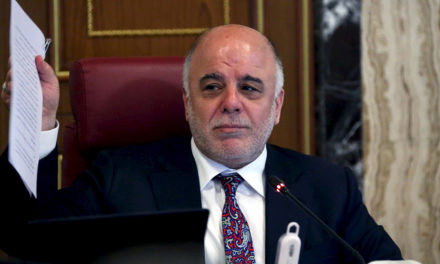The Iraqi Ministry of Foreign Affairs submitted a request to the UN Security Council to hold an emergency session to discuss Turkish presence on Iraqi territory and Turkish interference in Iraq’s affairs.
Ankara sent troops northeast of Mosul last year in a move which Iraq considers a “blatant violation” of its sovereignty.
Tensions between Baghdad and Ankara have risen with expectations of an offensive by Iraqi forces to retake Mosul, the last major Iraqi city under Islamic State control, captured by the militants two years ago.
Although Iraqi government’s objections to Turkish presence were clear from the outset of the incursion, the concern returned to the spotlight after Turkey’s parliament voted last week to extend the deployment of an estimated 2,000 troops across northern Iraq by a year to combat “terrorist organizations” – a likely reference to Kurdish rebels as well as Islamic State.
Iraq’s parliament adopted a resolution denouncing the extension and asked the government to consider Turkish troops as “occupation forces.”
Turkey, however, remained defiant, with Prime Minister Binali Yildirim pledging on Thursday to maintain Turkish troop presence “no matter what Baghdad says.”
Yildirim said Turkish troops would stay in northern Iraq to prevent alleged “efforts to forcibly change the demographic structure in the region,” in an apparent reference to the imminent offensive to take back Mosul.
Turkish interference in Iraq’s affairs drew criticism from Iraqi politicians of different religious and ethnic backgrounds. Ahmad al-Jiboury, an Iraqi Parliament Member from Mosul condemned Turkey’s actions and called for a tougher stance by the Iraqi government, adding that “If Iraq does not cut off diplomatic relations Turkey, including stopping trade and oil exports, the consequences will be disastrous.” Majid Shingali, a Kurdish member of the Iraqi Parliament said that “Turkish presence in Iraq is not justified, and the Iraqi parliament, the representative of all the Iraqi people, has categorically rejected these forces.”










